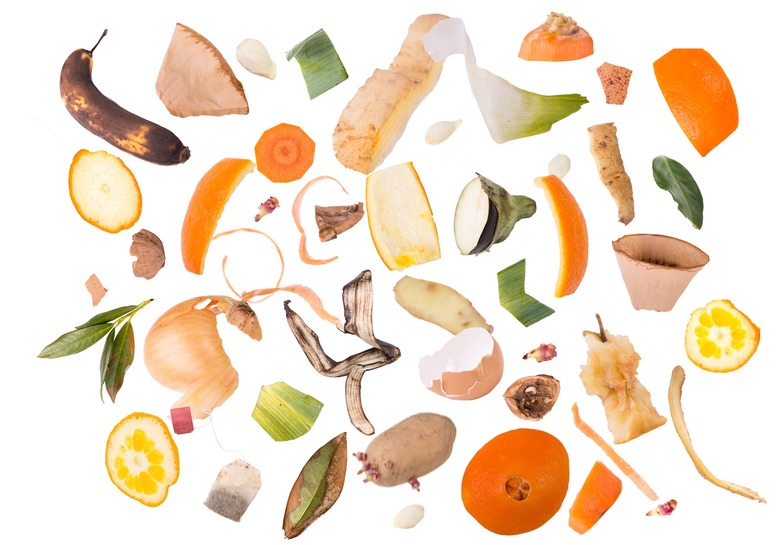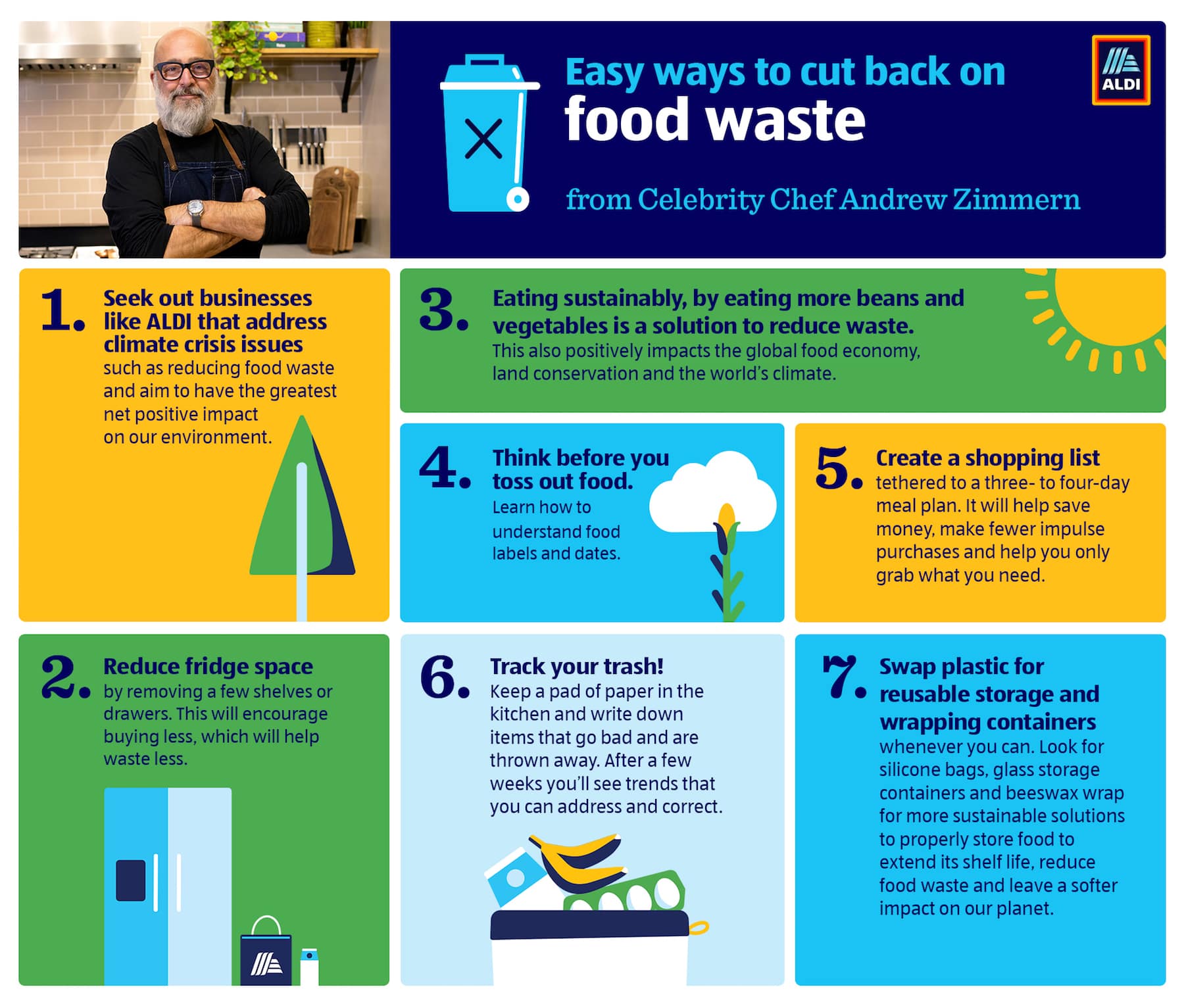Andrew Zimmern's Sustainability Tips For Home Cooks
April is Earth Month, but it takes more than one day or month out of the year to positively impact the environment. To be more sustainable in your everyday life takes time, effort and a renewed sense of responsibility over and over again. Though that may sound hard, there are many little tips and tricks you can do in your home kitchen to be more eco-friendly. And in the process, you may even end up saving some money.
Sustainable Kitchen Products for Your Everyday Life
To learn how home cooks can be more sustainable every day of the year, we spoke with TV personality, chef and social justice advocate Andrew Zimmern as a part of his partnership with Aldi for Stop Food Waste Day.
His first tip? Don't beat yourself up. "We know the majority of food waste occurs pre-consumer contact," he told us. "So, I want to make sure we're not demonizing home shoppers. Home shoppers are doing their best. If we give them the tools to reduce their food waste just by 10, 15, 20 percent, people are going to find we can really make a dent collectively."
Here are five simple but impactful ways Zimmern says you can decrease food waste in the home:
Shop more often and buy less
"Culturally, we're so busy and we live in such a convenience-driven society, especially here in America ... and we end up buying things that we don't need or aren't going to use in a relatively quick window," Zimmern says. Filling up our refrigerators can mean we have more than we can reasonably use up before it goes bad.
So what can you do to avoid buying random ingredients and hoping you can use then to make a meal everyone will actually eat? Write out a meal plan with an accompanying grocery list — and follow through. "Buy according to a written meal plan and to stick to that meal plan," suggests Zimmern. "If you're an American family and you decide you're just going to stuff the fridge and take advantage of every buy-one, get-one and you're going to jam everyone's favorite foods into the fridge, your waste is going to increase drastically."
Eat at home more
Though Zimmern very much recognizes the devastating toll the coronavirus pandemic has taken on the lives of people around the world, he says the last 14 months have helped to make Americans come to one conclusion: Cooking at home and eating together is a good thing.
"Whether you were holed up multi-generationally or just with more family members at home or just had the kids coming home after school and eating all their meals there, including breakfast and lunch — for those that could afford to eat — they found there were a lot of economies of scale," he says.
Making a genuine commitment to eating at home has the benefit of eliminating those meals you thought you were going to make but never did because life got in the way. "We're just a phone call away from my kid telling me 'Can I stay after school? I'm at Bobby's house and his parents invited me for dinner,'" Zimmern said. "Those kinds of things create leftover food, uneaten food or half-prepared food."
Record the things you throw away
Zimmern's top tip will make you reflect on your spending, eating and trash habits. "Put a pad and pen in your kitchen and write down what you're going to throw out and see if there are any trends," Zimmern recommended. "There are a lot of houses with a lot of thirsty kids who never throw out milk, and then there's some families that are buying that gallon jug of milk because they know by buying a larger jug, there are saving, but then they're throwing out one-third of the container every time — so they're actually losing money."
If you're consistently buying, for instance, a pound of two different kinds of cheese slices every week but four or five slices get fuzzy before you can eat them, consider buying just half a pound or just one type of cheese and using it multiple ways.
Rearrange your fridge
Noting that other Western countries shop more often and buy less at a time, Zimmern doesn't recommend you go out and buy a new, smaller fridge. But he does say that creating the illusion of a smaller fridge can help change your buying habits. To start, Zimmern suggests removing the drawers at the bottom of your fridge. "You can still use that lowest level as a flat surface to store things, but you're reducing the space in your fridge by anywhere from 20 to 30 percent. If you have less space in your fridge, you're not going to shop for as much," he says.
If you're not willing to part with the drawers, Zimmern suggests taking out a shelf. "Just try it for one month," he urges. "If you take out a shelf or some bins, you write some stuff down and you do a little bit of meal planning — say 'Oh, I'm going to make a lasagna' and just buy for that meal — all of those things are going to dramatically lessen your food waste," he says.
Expand your skillset
You may be an excellent cook with weeknight staples that you cook over and over again, but Zimmern recommends learning how to cook creatively and using food that may be on the edge of going bad. For example, in his house blueberries starting to turn get made into simple refrigerator blueberry jam or a blueberry baked good. And there are lots of ways to do this. You can use old fruit to make smoothies, use veggie scraps to make slow cooker stock or incorporate other easy ways to use food scraps to make new meals.

